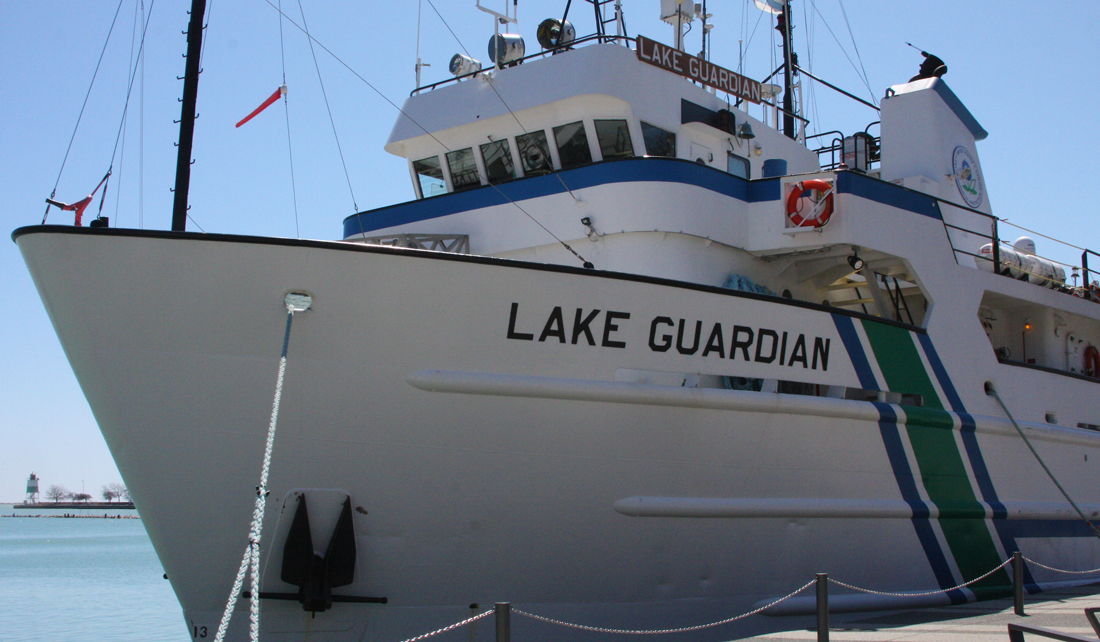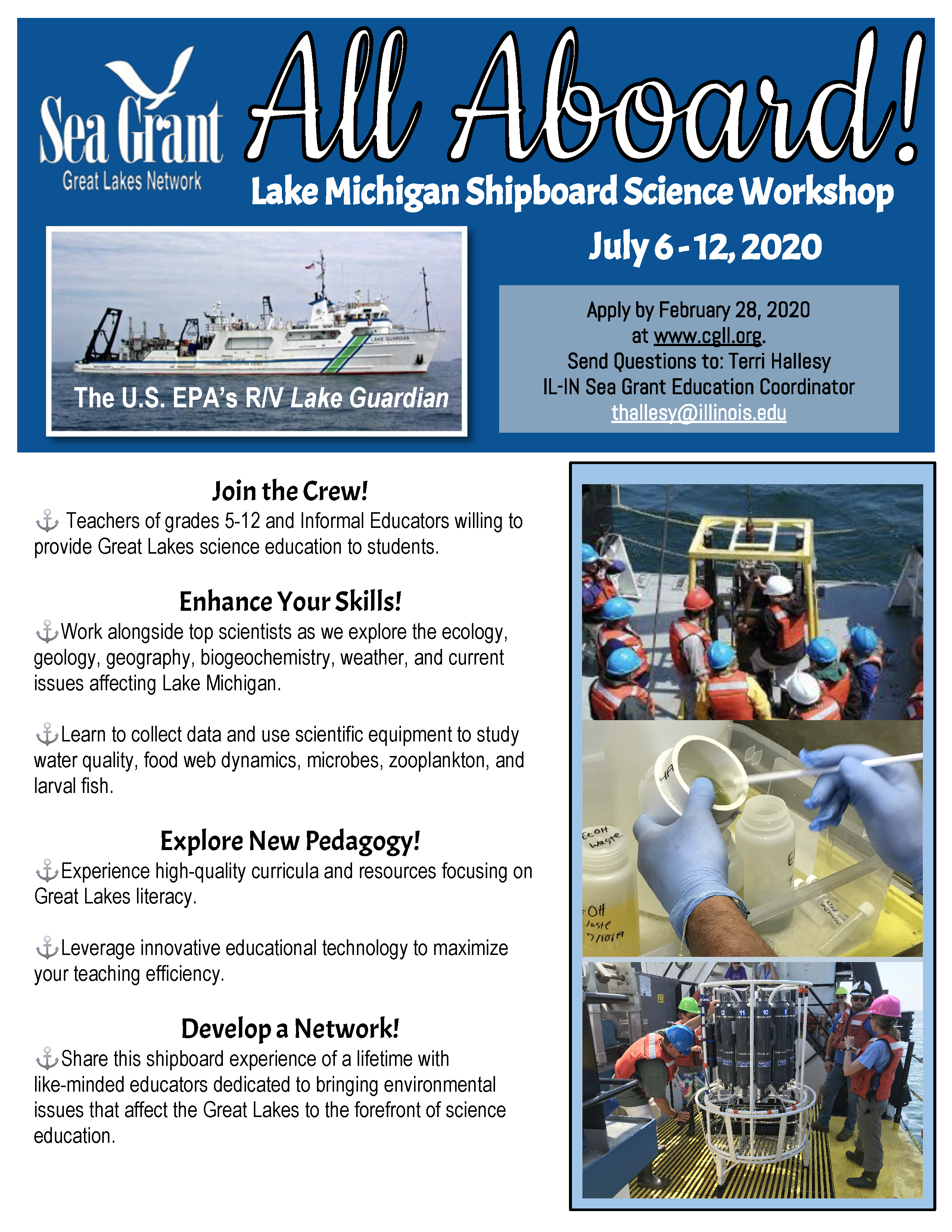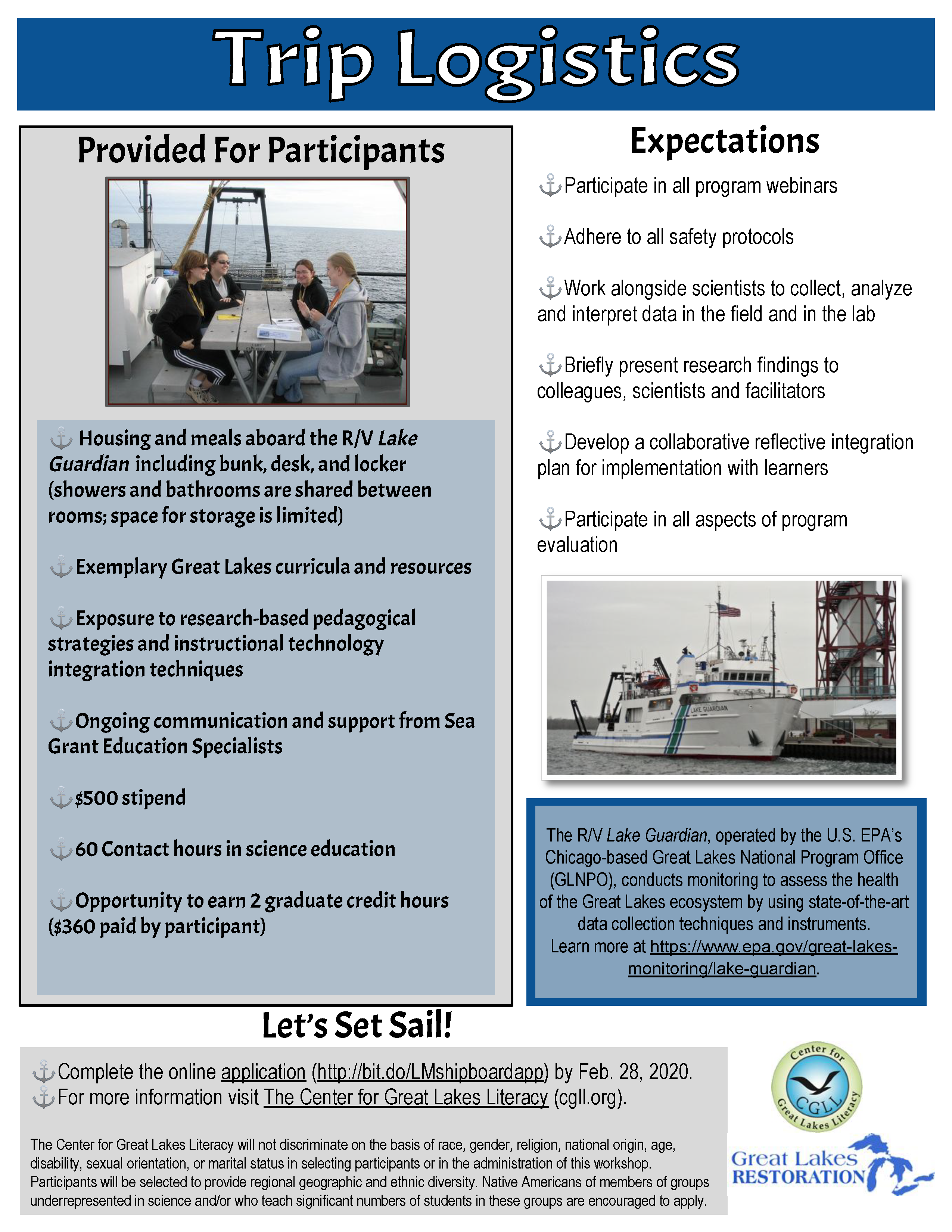
Join us for a week-long professional learning opportunity, working side-by-side with scientists on the 180-foot research vessel Lake Guardian. Participants board the ship on July 6, 2020 in Milwaukee, WI and return to Milwaukee on July 12, 2020.
- Work alongside top scientists as we explore the ecology, geology, geography, biogeochemistry, weather, and current issues affecting Lake Michigan.
- Learn to collect data and use scientific equipment to study water quality, food web dynamics, microbes, zooplankton, and larval fish.
- Experience high-quality curricula and resources focusing on Great Lakes literacy.
- Share this shipboard experience of a lifetime with like-minded educators dedicated to bringing environmental issues that affect the Great Lakes to the forefront of science education.
- Earn a stipend and 60 contact hours (if interested, two graduate semester hours from Ashland University [$360 tuition] can be purchased by the participant).
Interested? Check out the research vessel,and past blogs.
Meet two of the scientists leading the experience: Paris Collingsworth and Maureen Coleman.
Workshop Details
Registration/Application Deadline: February 28, 2020
Event Dates: July 6 – 12, 2020
Event Location: Lake Michigan (departing from and returning to Milwaukee, WI)
Applicants: Grades 5 – 12 classroom teachers and informal educators, must reside in a Great Lakes state
For More Information: Contact Terri Hallesy (thallesy@illinois.edu) or Joan Cox (jesarey@illinois.edu)
Application Materials
Online application


Illinois-Indiana Sea Grant is a part of University of Illinois Extension and Purdue Extension.

